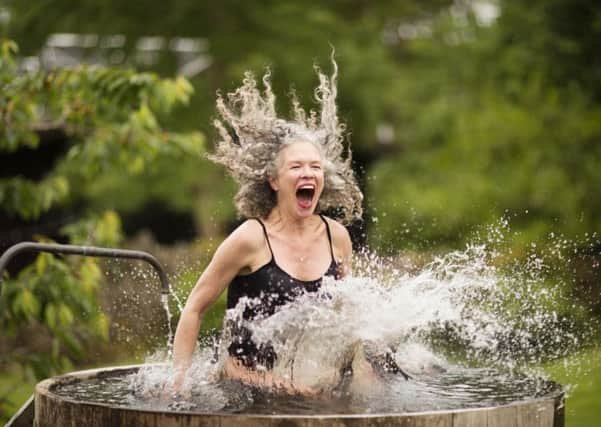'˜Wellness' trend forecast to shake up Scottish tourism industry


New research aimed at helping the industry capitalise on global trends has predicted soaring demand for sensory tourism experiences such as staying in roofless hotels open to the elements, bathing in wild rivers, eco-yoga holidays and wildlife watching to cope with illness.
Tourism businesses are also being urged to adapt by creating “gourmet baby menus”, cut-price offers for cash-strapped millennials seeking to “selectively splurge” on special treats, tap into the growing demand for creative retreat holidays and develop new events to bring the growing number of lone business travellers together.
Advertisement
Hide AdAdvertisement
Hide AdThey are also being warned that the visitor of the future will be expecting a “frictionless” journey to their destination in Scotland, with extra pressures on customer service when things go wrong and to make amends.
Wellness tourism is identified as the most significant new “movement” by VisitScotland in its annual research, which has previously identified growing demand for digital detox breaks, holidays focused on Scotland’s dark history and the “coorie” lifestyle trend of making the most of the outdoors.
The industry in Scotland, which is currently believed to be worth around £11 billion and support 14,000 businesses, is said to be “well-placed” to capitalise on the worldwide demand interest in wellness tourism, which is now estimated at almost £500 million and growing fast.
Experts at VisitScotland have predicted a growing trend for travellers to follow the Japanese philosophy of “Wabi-Sabi” by embracing imperfection and rejecting airbrushing in their social media postings.
They are also forecasting “the rise of the artisan” thanks to growing demand for travellers to seek the comforts of home on their holidays and “live like a local”, including staying with growing numbers of people with “side hustle” ways of making money, such as cookery courses, artist retreats, writing workshops and craft-making.
VisitScotland’s research paper on the latest trends, which is aimed at helping make Scotland “the most dynamic visitor economy in the world”, says the country is already “well-placed to embrace and capitalise on the global movement that is wellness tourism”, thanks to its remote and unspoiled landscapes, its range of natural produce, and the heritage of Victorian-era spa hotels around the country.
Chris Greenwood, senior tourism insight manager at VisitScotland, said: “More people are talking about how busy their lives are. Holidays are increasingly seen as a necessity rather than a luxury.
“From the growth of veganism to green, organic and clean living, people are looking at how their live their lives and how they can achieve betterment.
Advertisement
Hide AdAdvertisement
Hide Ad“In Scotland, the opportunity to embrace wellness within our visitor economy is interwoven with our tourism DNA. Our landscape and open spaces, food and drink, culture, and natural and built heritage are but a few of the elements which contribute to wellness and are naturally aligned to our current tourism offering.”
VisitScotland’s research said although there was growing evidence of travellers searching for “self, space and spirit” in their holiday plans, many of them are striving for “escapism” and “looking to unwind” and would also be keen to document, record and share their “journey” on social media – to both seek validation from their peers and inspire others.
Greenwood added: “While the force behind this driver [of wellness tourism] may be traced to the rise of the millennial and the impact this cohort has on today’s economy, wellness transcends age, social and geographical boundaries. It appears everyone is seeking their interpretation of wellness in some way.”